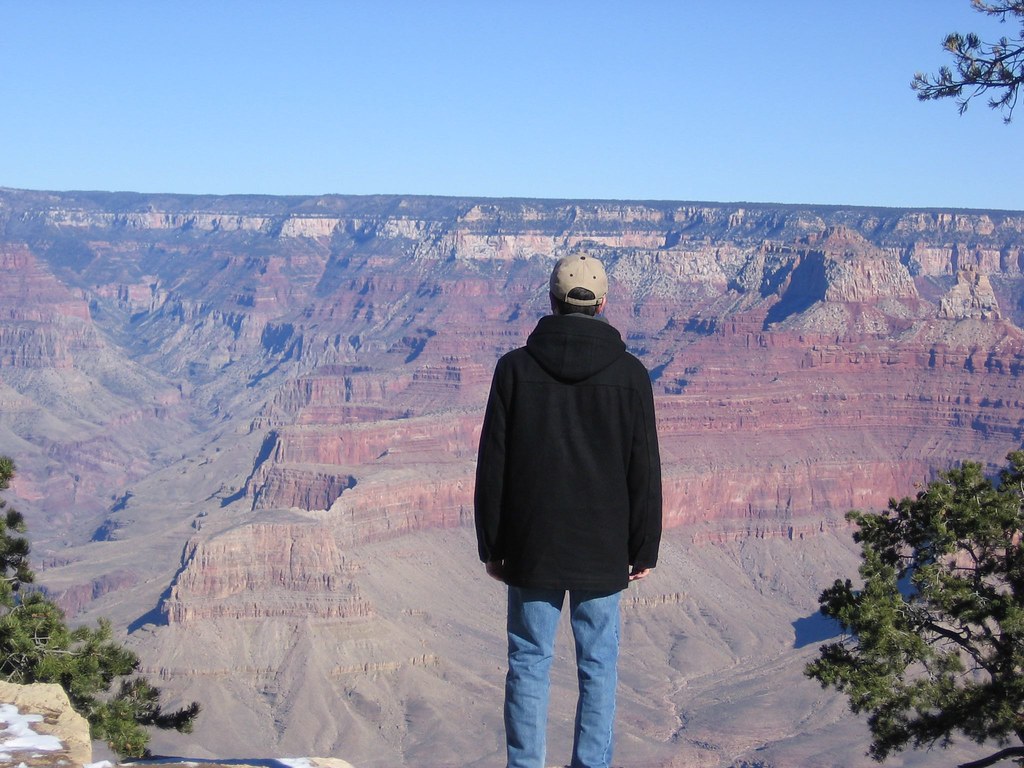Notice: I know some people are going to be too lazy to read this all the way through. Long story short: this site is no longer active. But fear not. It is being combined with my other site to form a new site in an effort to consolidate and prettify stuff. This post is cross-posted both at the other site and at the new site.
Life's a funny thing, they say.
I started blogging in 2003, as a sophomore in college. It was at the encouragement of a few friends who found my goofy sense of humor funny, and were willing (even eager) to read humorous pieces I had written. And boy, were they goofy. Some of the most creative (and dare I say inspired?) stuff I've written came out of that period, actually. And much to my surprise, people started reading. Not the 'public,' whoever they are, but people I knew - my siblings, and other friends and family - people who I wasn't even writing for originally. They actually found me genuinely funny. It was weird. My siblings, both older, never seemed to really admire me for anything, and now, it seemed, I was impressing them, and their friends. It was very cool, a real ego boost. And time went on, and I continued updating, with the occasional 3-month dry spell. I never got to the point of posting regularly or particularly frequently, likely due in a large part to my commitment to producing original work, rather than linking to other people's creations. Well, that and procrastination....
Allow me to digress here for a minute. I was something of an oddity in the blogging world. Most bloggers maintain readership by posting often. Typically, either these posts involve descriptions of their day-to-day lives, something which one never really runs out of material for, or they'd post links to other creative work, occasionally with added commentary. I was not prepared to broadcast the details of my life to the general public, and I didn't want to exist remora-like, living off the scraps left by the real producers of writing, images, music, and video. I wanted to be one of those producers, by writing relatively impersonal, humorous pieces. And that's pretty hard to do regularly, or it was for me, anyhow. But I kept at it, because even though my number of daily hits rarely crept above 10, it also didn't really sink down to zero. People were reading, so I continued writing, albeit sometimes infrequently. About a year and a half after starting blogging, it occurred to me that I had what to write that wasn't goofy and humorous. The material I had in mind was downright serious. And so I had a problem. I couldn't just post those pieces on the original blog, like nothing was different, because I didn't want to turn away readers who had come to expect humor. But I still wanted to share my thoughts on weightier matters than the odd contents of my fridge.
So I started a second blog, this site.
This just compounded my problems. Ideally, I would have a regularly updated blog, with many readers and an active and lively comments section. By creating a second blog, for my 'serious' stuff, I was splitting my efforts and my readership, and ultimately hurting my progress in reaching my goals. But what could I do? I kept updating both blogs, and people (still very few) read both. I wanted to upgrade. But how? Well, for starters, if I was going to maintain two blogs, when one could probably suffice, I could at least make them both stand out. Thus began the big redesign. After a few false starts, I redesigned each blog in turn, from the bottom up. The functionality remained the same, but they got all dressed up in what I thought were nice makeovers. Still, while I wasn't getting at the main issue, I ran into others. Blogger wasn't giving me the flexibility and control I wanted to have with my site, nor did I have online storage to use. Plus, the web addresses were long and cumbersome - there were regular readers who sometimes forgot them. So I decided on a new non-solution, something I'd been planning on doing anyway. Enter the as-yet-unused bitsofink.com. I thought it was a neat little title which happened to be available - using a play on the word "bits" to connote digital writing, and a kind of meshing of the past and present, something I try to aim for in my writing. (Ok, so I guess that sounds a little pretentious. Mea culpa.) So then the question was "now what?" Well, I could (and did, actually) import the two blogs into one, hosted at bitsofink. But this wasn't a solution either - not yet, anyway. People would need to be redirected to the new site (actually, not such a difficult problem to solve), plus, what would become of the new designs? They centered around their banners, and the new combo-blog would be called something different. So if I wanted a new site, I'd need a new design. I got as far as designing the banner, which I just dropped into a (fairly boring) pre-made template. But I continued updating the two Blogger sites, and nothing really changed.
Finally, the final straw came. You see, as I continued writing in the 'serious' blog, I found that I was writing more and more personal material. And life has a way of not being easily placed into 'humorous' or 'serious' boxes. Life just is, and we just live it - lovely and crazy and giddy and depressing as it is. It's sometimes so terrifying you have to laugh, and sometimes so laughable you have to cry, and sometimes, it's just wabi-sabi. So I was coming up with posts that didn't belong in one of the two blogs, but somewhere in-between. So I decided I'd just have to bite the bullet and do it. So I worked on a redesign that I think is nice enough to justify the move and the abandonment of the old sites. I've imported all of the old posts and even marked them with which blog they originally came from (using fun little icons. I still have a few things to tweak, and I need to clean up the old imported posts so they look right and such, but things are more or less up and running. Now I can get back to posting in earnest, and maybe even persuade some of the other bloggers who read my stuff to throw a link or two my way (hint, hint) to help me finally get this operation off the ground. The old sites will remain up, and I'll put up a notice to that effect within a week, but all new updates will be at the new site.
Phew, who knew blogging could be such hard work?


